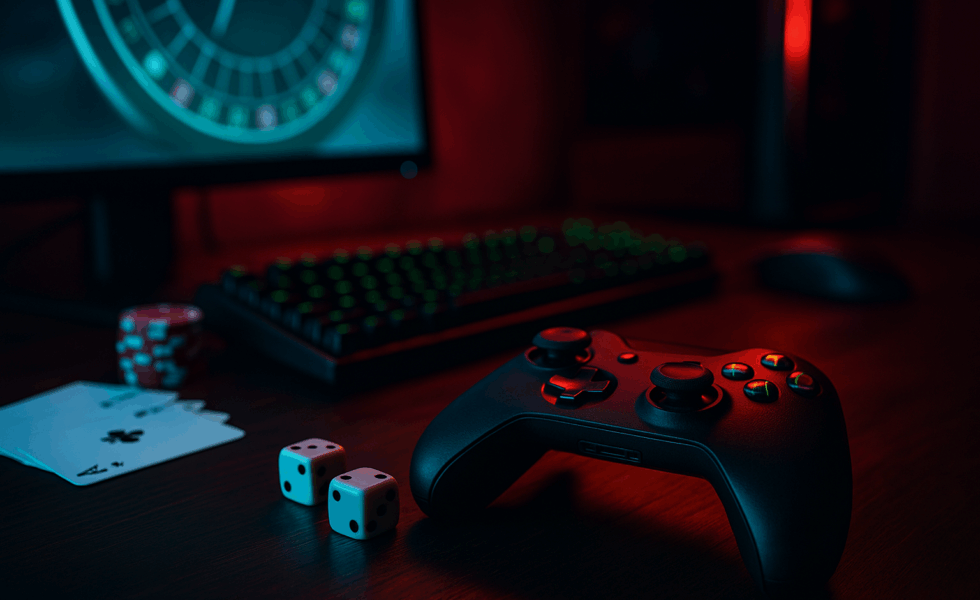There was a time when gaming meant beating the last boss, and gambling meant losing your paycheck at the casino.
Those worlds were separate, one fuelled by fantasy, the other by finance. But somewhere between Twitch poker streams, loot boxes, and esports betting, the line blurred.
In 2025, it’s not just gamblers chasing adrenaline, gamers are too.
The Psychology of Risk
At its core, both gaming and gambling are built on the same neurochemical cocktail: risk, reward, and repetition. Every loot box, critical hit, or match win feeds the same loop, the dopamine hit that says one more round.
For a generation raised online, that rush is part of the entertainment package. Studies on gamer behaviour have long drawn parallels between progression mechanics and the principles of slot machine design. The difference now is that real money’s in the mix.
Esports betting, crypto casinos, and in-game economies have turned digital play into a high-stakes ecosystem where the currency might be Bitcoin, skins, or cash.
When the Games Turn Real
Platforms like Twitch have amplified this shift. Watching streamers gamble live, or poker pros break down hands for thousands of viewers, has made risk a spectator sport. Esports stars now hold the same cultural weight as traditional athletes, in fact, Gen Z trusts esports players more than sports stars.
The same fans who grew up idolising League of Legends champions now follow poker streamers and blackjack influencers. It’s all content, whether it’s a clutch play or a perfect hand.
Meanwhile, the accessibility of gambling platforms and the global reach of VPNs has created a strange middle ground. Australian players can’t legally access many online casinos, yet plenty still log in via offshore platforms or crypto-based systems that skirt regulation.
It’s a shadow economy that thrives in plain sight, streaming, tipping, and playing to global audiences who treat the table like a digital arena.
The Rise of the Calculated Player
There’s also a new breed of gambler emerging, less high roller, more data analyst.
According to Mike Waters from AustralianGamblers.com, the smartest players aren’t chasing luck, they’re chasing fairness. This modern player treats gambling like a game of probabilities, transparency, and consumer protection. They track payout structures, review casino fairness, and call out operators who exploit players, especially those targeting the same crowd that grew up gaming.
It’s a natural evolution: as gaming moved toward monetisation, the smartest players brought logic and restraint to the table. The thrill didn’t die, it just got measured.
The Culture of Risk and Rebellion
In music, rebellion has always sold. Artists like Kneecap built careers on challenging authority, just as gamblers challenge probability. That mindset bleeds into gaming too, the idea that risk equals freedom.
When Drake lost $8 million in a single month gambling, it wasn’t just tabloid fodder, it was spectacle. Fans weren’t shocked; they were entertained. The culture of high-stakes risk has become a shared performance, a global sideshow of adrenaline and absurdity.
Where It All Meets
For every player going all in on poker, there’s another grinding through the best short gaming sessions on their lunch break. Different worlds, same wiring. Both are chasing the moment where everything clicks, that flash of luck, timing, or skill that makes the world fade for a second.
Gambling and gaming might not share the same rulebook, but they share the same impulse: the human need to feel alive through risk. Whether it’s rolling dice, clicking heads, or bluffing a millionaire, it’s all part of the same story, one where the stakes just keep getting higher.







